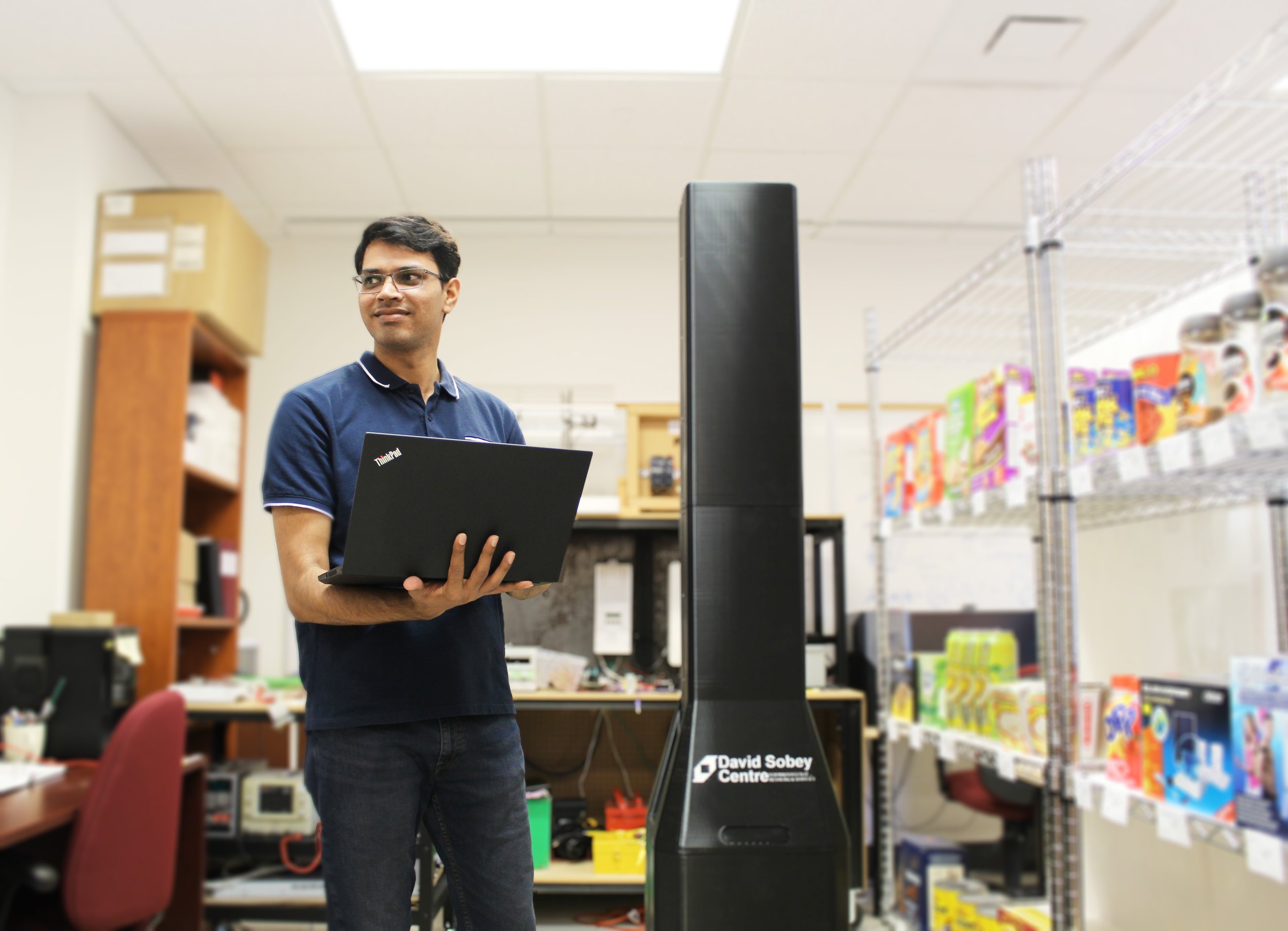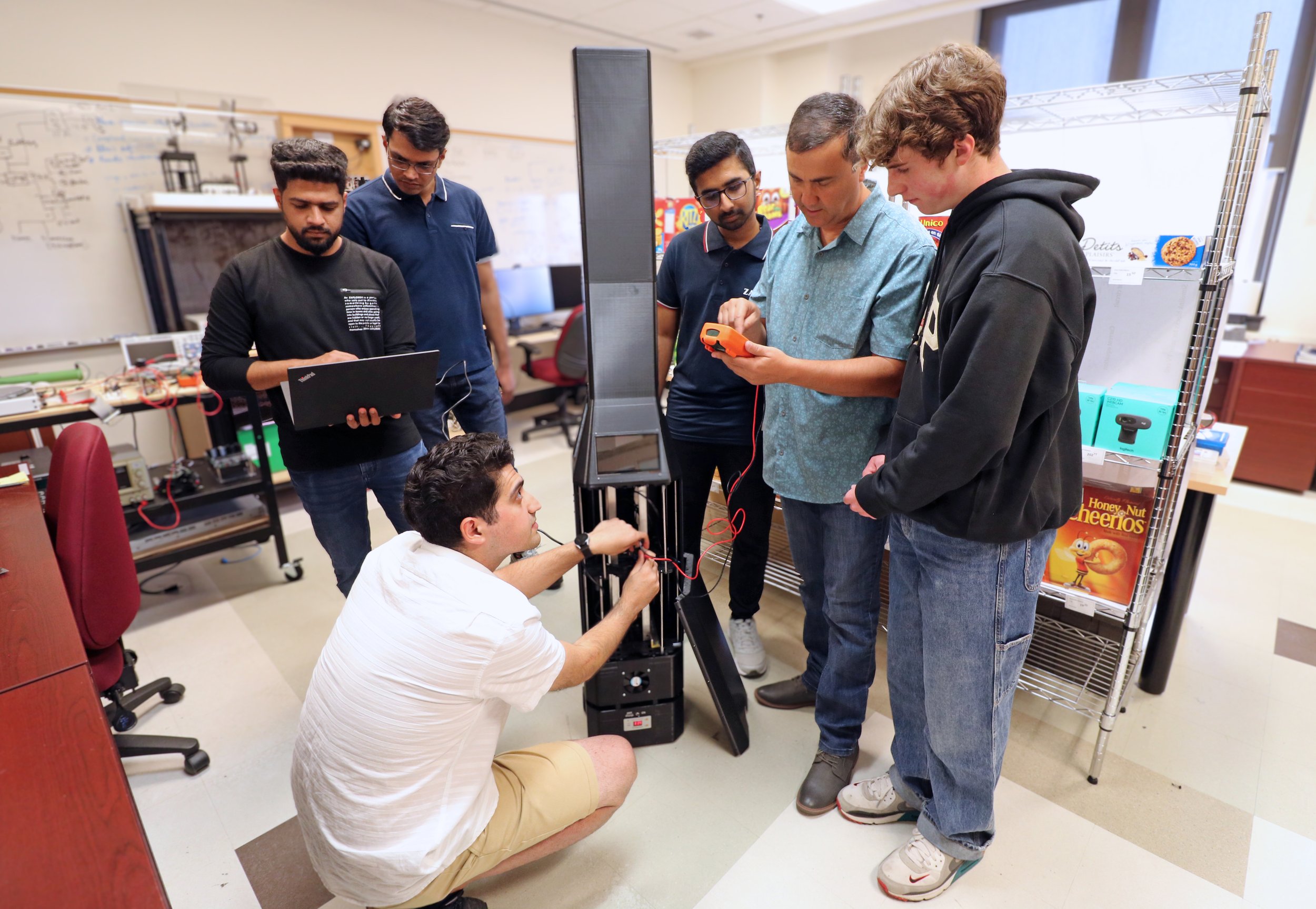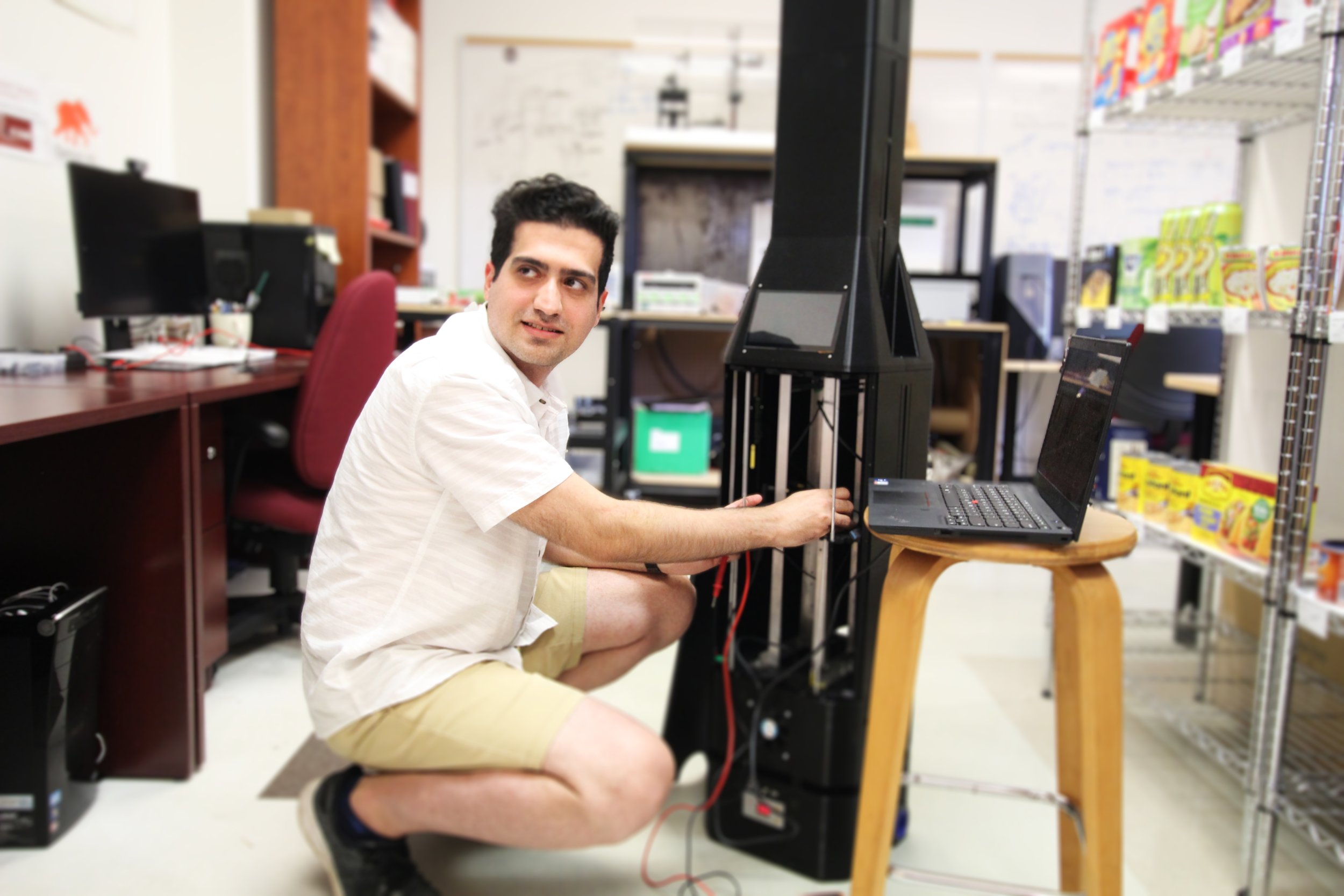L-R, Mohammad Rahimipour MSc in Applied Science; Professor Adel Merabet; Lucas Orychock first-year Diploma of Engineering; Uzair Tahir MSc in Applied Science; Abhishek Vijayakumar Latha MSc in Computing and Data Analytics; Francis Kuzhippallil MSc Computing and Data Analytics.
Students are arriving to Saint Mary’s University from Nova Scotia and around the world to create the next generation of robots.
Uzair Tahir
“It was a very big decision to leave my country, my family, come to Canada and start from zero,” says Uzair Tahir, a Master of Science in Applied Science student who left Pakistan to join the team in Dr. Adel Merabet’s lab on the third floor of the McNally Building. Only three months into his studies, he is enhancing his skills in computer vision and machine learning and can see a bright future. “My work here leads to a career in robotics and I see the potential for commercial application.”
The Saint Mary’s robot is the brainchild of the university’s David Sobey Centre for Innovation in Retailing and Services. The robot is just one of several technology-based innovations currently being pioneered at the Centre, all designed to transform our everyday shopping experience. The robot will certainly free up retail employees from humdrum tasks, but that is only the beginning. The real advantage is its ability to capture voluminous data about customers’ buying habits, which can lead to greater efficiency in inventory management and eventually enable retailers to anticipate shopper demands. Combine the robot with machine learning and AI, as the Saint Mary’s team is doing, and we are entering the Fourth Industrial Revolution which will transform how we work, conduct business and how we shop for goods and services.
Does this mean robots will commandeer grocery aisles or replace humans at your favourite big box store? No, but robots are finding their niche by enabling better data capture before and after point of sale, allowing managers to respond more quickly to customer demands for everything from potato chips to batteries.
Students work together on the retail robot in Professor Merabet’s lab
Francis Kuzhippallil and Abhishek Vijayakumar Latha, both current students in the Master of Science in Computing and Data Analytics program, see the project as a great gain for their future careers. They contributed to the development of algorithms and codes that enable the robot to take photos of products on store shelves and transmit the information without overlap or duplication, a key factor in planogram compliance, which lets retailers know exactly which products have been moved or purchased and when to restock.
“I want to be one step ahead and this project gives me that opportunity,” says Latha. For Francis Kuzhippallil, the project has boosted his portfolio. “Interviewers and colleagues are always interested to know more about this project. I am honoured to have a role.”
Francis Kuzhippallil
Abhishek Vijayakumar Latha
Mohammad Rahimipour, who is in the Master of Science in Applied Science program, came to Saint Mary’s from Iran in 2022. “My experience here has been amazing,” says Rahimipour. “Saint Mary’s University is very multi-cultural. The environment is collaborative; students know their input is valued and the professors support us.”
Mohammad Rahimipour
Rahimipour is the team leader—he has led the construction of version 3, a robot that is autonomous and able to operate without a human controller. New cameras allow it to take accurate photos at a greater distance, all advantages for a machine that will need to navigate around bargain shoppers or avoid a ‘cleanup on aisle two.’
“I have made a lot of changes to the robot. I see my progress every day as the robot performs and the project improves. I can’t wait to try out the robot in a real store. That’s the next step,” says Rahimipour.
Lucas Orychock
Entering his second year in Engineering at Saint Mary’s, Lucas Orychock from Bedford, Nova Scotia, knows it is unusual for an undergraduate student to gain this type of first-hand experience. During his summer work with Dr. Merabet’s team, he had the opportunity to learn how to use sophisticated tools to capture photos from high-quality cameras. “Achieving this level of exposure to hands-on research is motivating. There is a place for everybody’s input.”
For Professor Adel Merabet, the collaboration with the David Sobey Centre for Innovation in Retailing and Services and the participation of many students from programs such as Engineering, the Master of Science in Applied Science and Computing and Data Analytics, is the perfect example of a project that is interdisciplinary, combining the talents of many researchers and pragmatic, demonstrating real-world application and commercial potential.
























